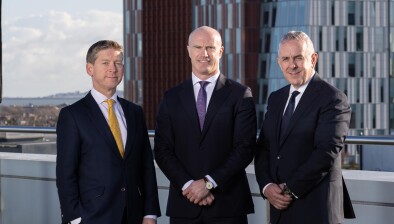Venture capital funding into Irish tech SMEs stalls

Venture capital funding into Irish technology SMEs stalled in the third quarter of the year, according to a survey published in association with William Fry.
VC funding finished at €192.5 million in Q3 2024, just one per cent ahead of the same period last year, the Irish Venture Capital Association’s Venture Pulse survey reveals. Globally, VC funding fell by 15 per cent year-on-year.
VC funding in Ireland for the nine months to end of September fell by 18 per cent to €945.3m from €1.1bn in 2023. Globally VC funding fell by 3.7 per cent over the same period.
International VC funding into Ireland fell by almost €200m or 24 per cent for the year to end of September. International funding for the third quarter of €85m amounted to 44 per cent of the total for the period.
Gerry Maguire, chairperson of the Irish Venture Capital Association, said: “A positive feature of the third quarter is that the number of deals rose by 55 per cent to 59.
“While there were no rounds in the €30m plus range, this was compensated for by an increase in deals under €10m, including seed funding. These underlying trends reflect a buoyant ecosystem in Ireland for early-stage companies, many of which are involved in cutting edge technologies such as Artificial Intelligence (AI), Cyber Security, Quantum Computing, MedTech and Envirotech.
“However, the potential for an isolationist leaning incoming administration in the White House to implement policies that could be negative for Ireland emphasises the need for us to take these indigenous companies to the next level and grow our own tech champions rather than rely on less committed overseas investment.”
Sarah-Jane Larkin, director general of the Irish Venture Capital Association, said that while there were no deals over €30m in this quarter, there was an encouraging bounce in smaller rounds.
Deals in the €3-€5m range rose by 52% to €29m. €1m-€3m rounds grew by 16% to €26m, and deals under €1m rose by nearly a third to €9m. Seed funding, or first rounds raised by SMEs, more than doubled to €33.5m.
Commenting on the opportunities for an incoming government to enhance Ireland’s competitiveness in an increasingly uncertain global market, Ms Larkin welcomed the small business provisions in a number of party manifestos which emphasise the need for scaling up funding, and in particular the backing of pension funds in this regard.
She said that while the support for early-stage firms was a positive feature of the Irish economy, a warning signal was that average deal size in Ireland has fallen since 2018, compared to comparative European countries.
Ms Larkin said: “Drip feeding of small rounds is not efficient. As a result, the proportion of Irish firms going out of business is higher than the European average.”
Largest deals in the third quarter were medtech company, Neurent Medical (€18.2m); renewable energy firm, Circal (€15m); EV and solar installation provider, ePower (€15m); medical device company, Luminate (€13.9m) and medtech firm, Loci Orthopaedics (€13.8m).
Ms Larkin added: “Access to public capital for VCs through the likes of EI (Enterprise Ireland) and ISIF (Ireland Strategic Investment Fund) in Ireland and EIF (European Investment Fund in Europe) has never been better.
“However, there is now a severe shortage of matching private capital in Ireland from investors such as pension funds, family offices and corporates. Government policy can have a significant impact in fixing this, as is happening in the UK, and in several EU countries such as Denmark and France.”
Life sciences was the leading sector in the nine months to end September, raising 42 per cent of the total (€392.8m), followed by envirotech (13 per cent); regtech (10 per cent); fintech and software (both nine per cent). In the third quarter, AI and machine learning was the third highest sector, raising 11 per cent.









